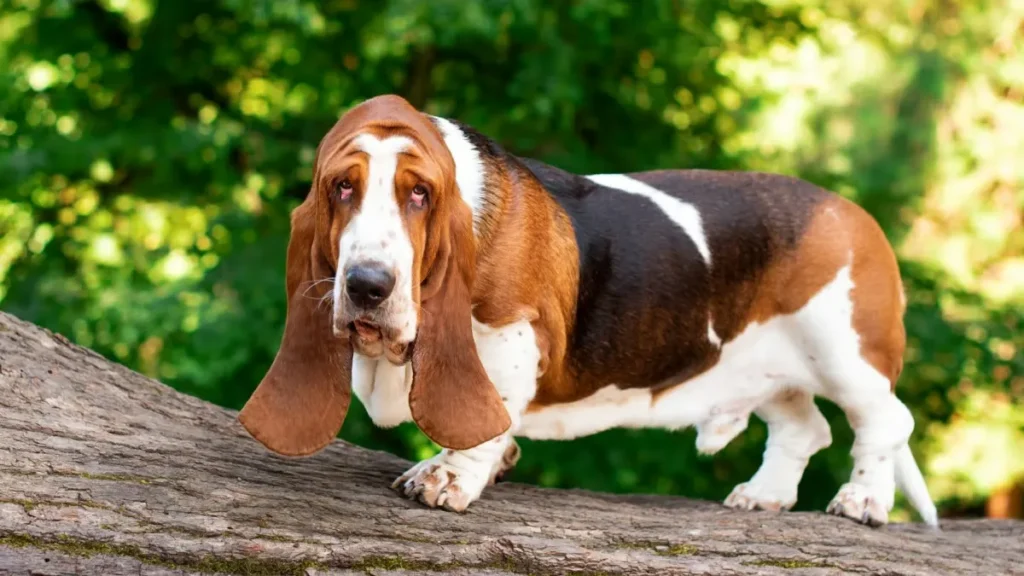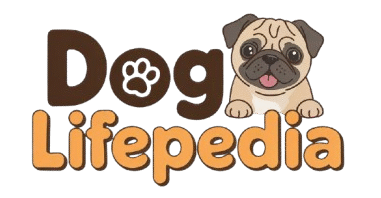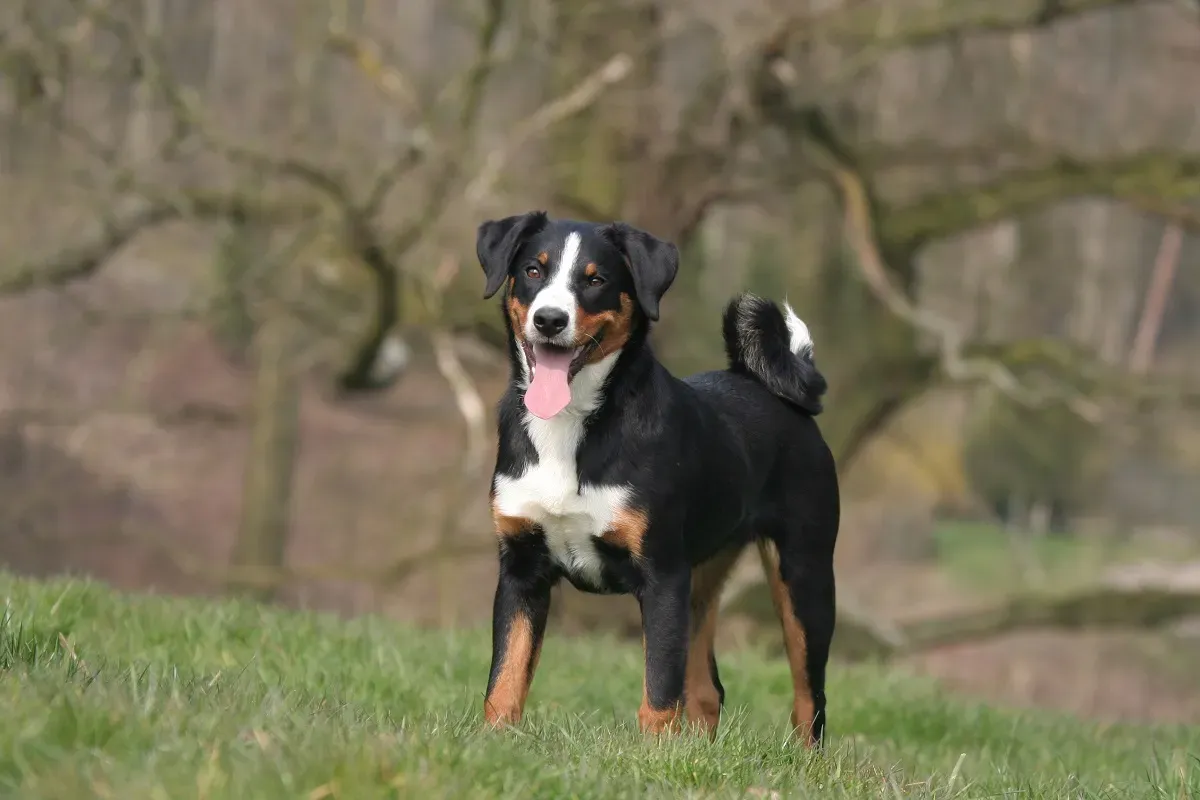
Basset Hound
Heena
May 25, 2025

The Basset Hound is a distinctive and much-loved breed, famous for its droopy ears, soulful eyes, and short-legged, sturdy build. Originally bred in France for hunting small game such as rabbits, the Basset Hound is now primarily a devoted companion, known for its gentle nature and charming personality. In the UK and USA, this breed has remained popular thanks to its affectionate temperament and unique appearance.
Breed Overview
- Breed Name: Basset Hound
- Group: Hound (AKC & UK Kennel Club)
- Origin: France
- Height: 11–15 inches (28–38 cm) at the shoulder
- Weight: 40–65 lbs (18–29 kg)
- Life Expectancy: 10–12 years
- Temperament: Gentle, loyal, stubborn, affectionate
Breed Colors & Markings
Basset Hounds have short, smooth coats and come in a variety of classic hound colors and patterns, including:
- Tri-color: Black, white, and tan (most common)
- Bicolor: Lemon and white, red and white, or chestnut and white
- Other combinations: Variations of brindle and white or tan and white
Their markings are often striking and add to their unmistakable charm.
Temperament & Personality
Basset Hounds are known for their:
- Gentle and easygoing nature: Great with children and other pets
- Stubbornness: Can be independent thinkers, making training a challenge
- Affectionate: Form deep bonds with their family members
- Loyalty: Protective without being aggressive
- Quiet demeanor: Tend to bark less but can howl or bay, especially if bored or left alone too long
Their calm and loving disposition makes them excellent family pets and companions.
Communication & Intelligence
Basset Hounds are intelligent but have an independent streak:
- Vocal: Known for their distinctive howl and bay, especially when tracking scents
- Expressive: Use their droopy eyes and body language to communicate emotions
- Scent-driven: Exceptional sense of smell means they can become distracted when following scents
- Training challenges: Their stubbornness requires patience and consistency
They respond best to positive reinforcement and reward-based training methods.
Health & Lifespan
The Basset Hound is prone to some breed-specific health issues:
- Ear infections: Due to long, droopy ears that trap moisture and debris
- Hip and elbow dysplasia: Joint problems requiring monitoring
- Obesity: Easily gain weight, which stresses joints and impacts overall health
- Intervertebral disc disease: Due to their long backs
- Bloat (gastric torsion): A serious and potentially fatal condition, requiring prompt veterinary care
- Eye issues: Such as glaucoma and entropion
Regular vet visits, ear cleaning, and a controlled diet help manage these risks. They usually live 10–12 years.
Grooming Needs
Basset Hounds have relatively low grooming requirements but need regular care:
- Brushing: Weekly brushing to remove loose hair and keep the coat healthy
- Ear cleaning: Very important—clean ears weekly to prevent infections
- Bathing: As needed, usually once a month or when dirty
- Nail trimming: Every 3–4 weeks
- Dental care: Regular brushing to prevent dental disease
Their short coat makes grooming easy, but ear care is critical for overall health.
Exercise Requirements
Despite their laid-back nature, Basset Hounds need moderate exercise:
- Daily walks: 30–45 minutes to maintain healthy weight and muscle tone
- Playtime: Interactive games and scent-tracking activities engage their natural instincts
- Safe environment: Supervised outdoor play to prevent wandering off following a scent trail
- Avoid strenuous exercise: Due to their short legs and long backs, overexertion should be avoided
Regular exercise keeps them fit and mentally stimulated.
Training & Socialisation
Training Basset Hounds can be a test of patience:
- Start early: Socialize puppies with people, pets, and different environments
- Positive reinforcement: Use treats, praise, and consistency to encourage good behavior
- Short sessions: Keep training sessions fun and brief to maintain attention
- Manage stubbornness: Be firm but gentle to prevent frustration
- Crate training: Can help with housebreaking and providing a safe space
With time and patience, Bassets learn commands and good manners.
Nutrition & Diet
Proper nutrition is vital to avoid obesity and maintain health:
- High-quality dog food: Formulated for medium-sized, less active breeds
- Portion control: Measure meals carefully to prevent overeating
- Feeding schedule: Two meals per day
- Fresh water: Always accessible
- Avoid table scraps: Can cause weight gain and upset digestion
A balanced diet supports joint health and overall wellbeing.
What to Expect as an Owner
Owning a Basset Hound means:
- Welcoming a calm, affectionate, and loyal companion
- Committing to regular ear cleaning and vet visits
- Providing daily moderate exercise and mental stimulation
- Managing their stubbornness with gentle training
- Enjoying a dog with a strong scenting ability and an endearing personality
They are well-suited for families, seniors, and individuals who appreciate a laid-back but loving pet.
Is the Basset Hound Right for You?
If you want a gentle, affectionate, and loyal dog with a distinct personality and appearance, the Basset Hound is a wonderful choice. Ideal for families or individuals living in the UK or USA who can provide patience, moderate exercise, and consistent grooming.
Final Thoughts
The Basset Hound is a charming, lovable breed with a unique look and a heartwarming temperament. With proper care, training, and attention to health, they make devoted and entertaining companions for many years.

